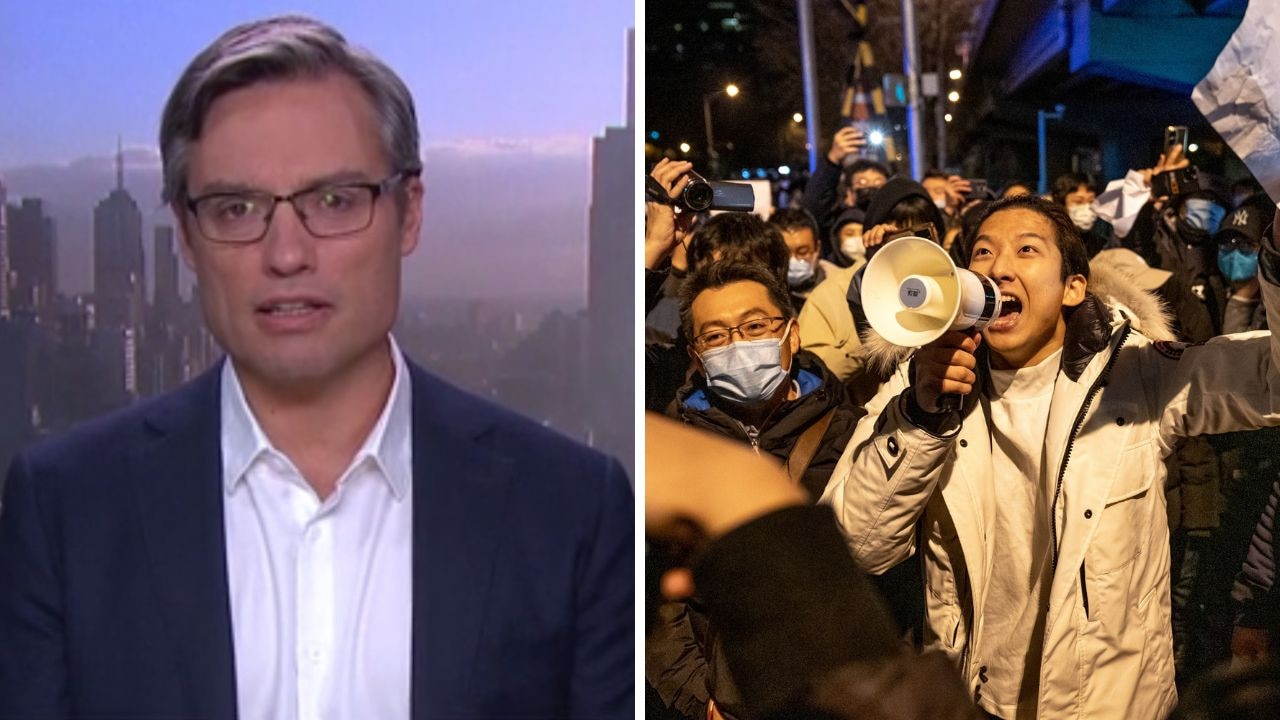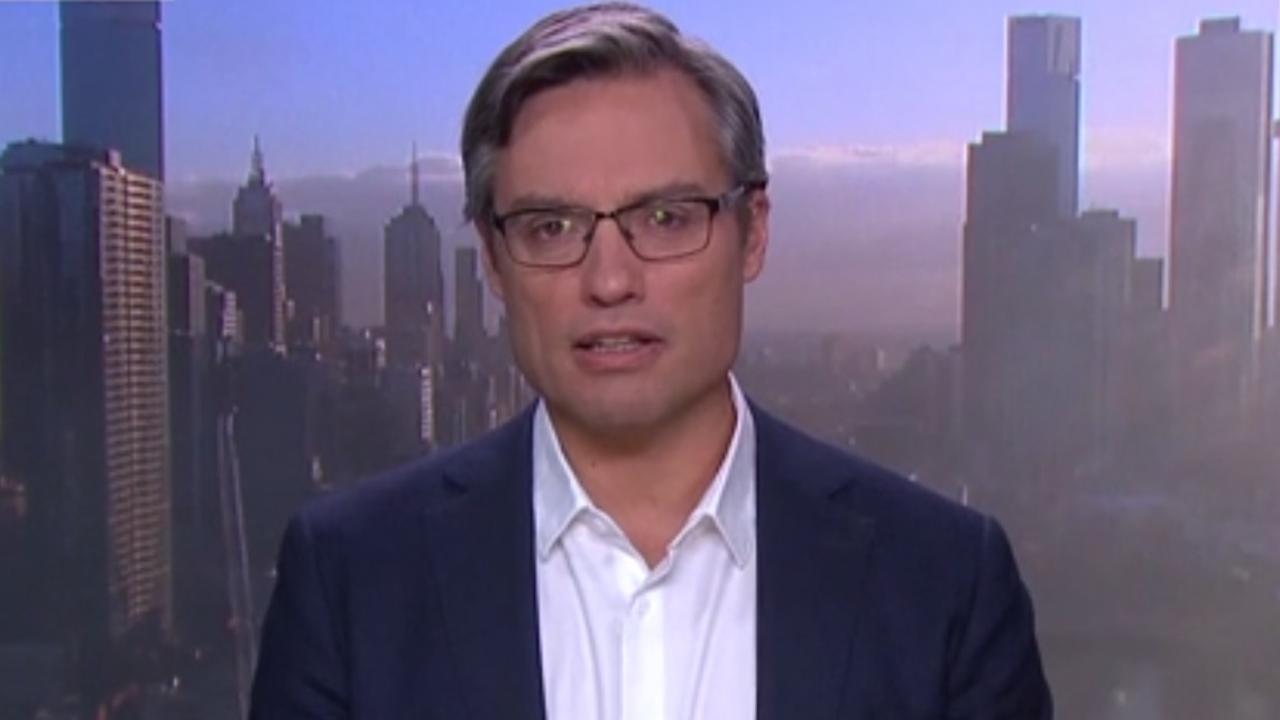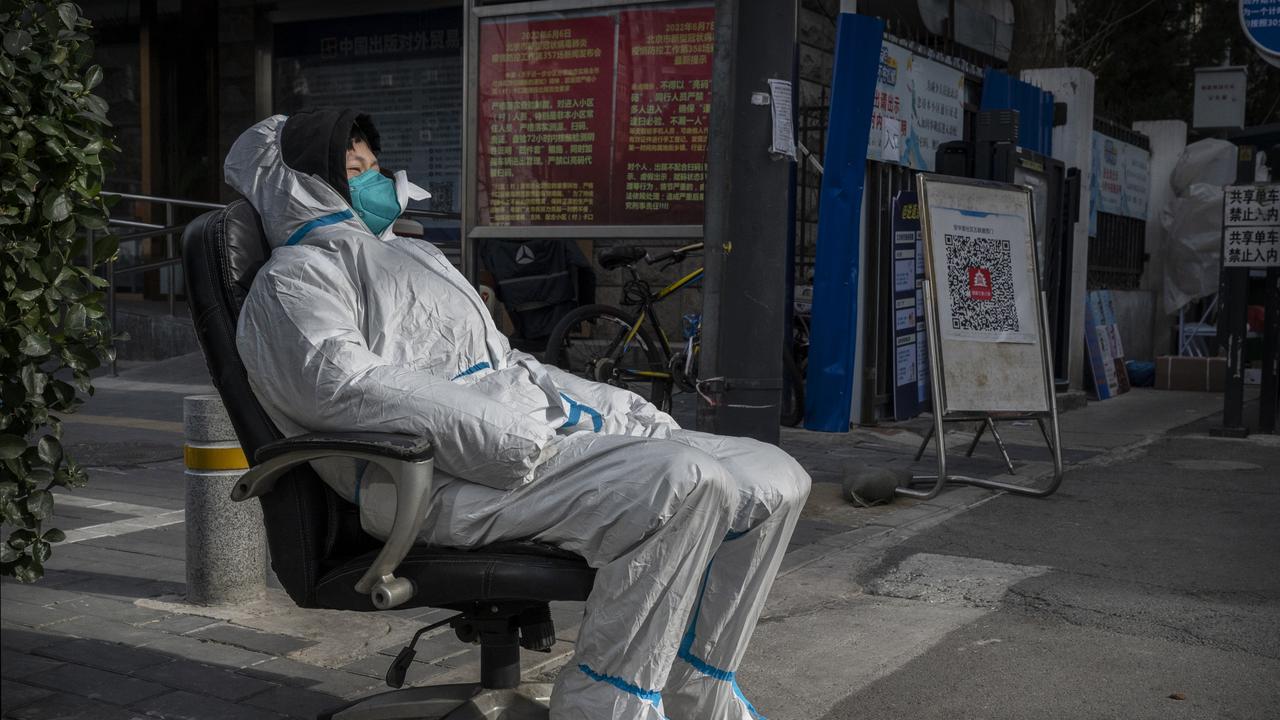Top doctor warns the worst of Covid pandemic is unfolding now
Infectious disease expert Dr Nick Coatsworth has warned the “most serious moment” of the pandemic is upon us.

One of Australia’s top doctors says the world is facing its“most serious moment” of the Covid pandemic since it began back in 2019.
Former deputy chief medical officer Dr Nick Coatsworth said on on Wednesday that he believes it was inevitable that Chinese president Xi Jinping would have to back down on Beijing’s ‘zero Covid’ policy, which has sparked a rare tide of civil unrest in the authoritarian state.
Because the strict policy hasn’t been accompanied by elderly Chinese people getting vaccinated, Dr Coatsworth argues the danger now facing the population of more than 1.4 billion will grow as Beijing backs down and allows people to return to a more normal life.
Stream more world news live & on demand with Flash. 25+ news channels in 1 place. New to Flash? Try 1 month free. Offer available for a limited time only >

“Only 40 per cent of over 80s have received a third dose of Covid-19 vaccine,” he told Nine’s Today Show.
“With the Omicron variant being so infectious, it will spread. The genie is out of the bottle. The Chinese Government won’t be able to hold back Covid [and] it will spread.”
Pandemic fatigue experienced in China is on an entirely different scale, he added, saying it was only a matter of time before the population rebelled against the “most authoritarian government in the world”.
“I think the point is if you are going to adopt such a stringent strategy of Covid-zero for so long and the most authoritarian government in the world will eventually find that their population rebels against it,” Dr Coatsworth said.
“We talk about pandemic fatigue in Australia. This is on a completely different scale obviously in China. If you are going to adopt that policy, you better make sure that you’re convincing your population to get vaccinated.”

He predicted the elderly population would “bear the brunt of this wave” sweeping across the country.
The unfolding catastrophe would undoubtedly influence the geopolitical landscape, Dr Coatsworth said.
“This might be the most significant impact we have seen in the pandemic where you have seen in the pandemic where you have protests across multiple Chinese cities against someone, a world leader, who has held absolute authority up until the past week or so,” he said.
Protests broke out following a fire last week on the 15th floor of an apartment building in Urumqi, the capital of the Xinjiang region, that killed 10 people.
Residents were outraged after speculating firefighters were delayed due to strict quarantine orders and residents were unable to escape because of locks on the building.

China’s top security body warned late on Tuesday night that authorities would “crack down” on the protests, which are the most widespread since pro-democracy rallies in 1989 that were crushed with deadly force.
The protests erupted over the weekend across major cities, including Beijing and Shanghai, with China’s vast security apparatus moving swiftly to smother any further unrest.
But new clashes broke out in China’s southern city of Guangzhou on Tuesday night and into Wednesday, according to witnesses and social media footage.
Security personnel in hazmat suits formed ranks shoulder-to-shoulder, taking cover under see-through riot shields, to make their way down a street in the southern city’s Haizhu district as glass smashed around them, videos posted on social media showed.
In the footage people could be heard screaming and shouting, as orange and blue barricades were pictured strewn across the ground.
People are seen throwing objects at the police, and later nearly a dozen men are filmed being taken away with their hands bound with cable ties.
A Guangzhou resident surnamed Chen told AFP on Wednesday that he witnessed around 100 police officers converge on Houjiao village in Haizhu district and arrest at least three men on Tuesday night.
Anger over China’s zero-Covid policies - which involves lockdowns of huge numbers of people and has strangled the economy - has been the trigger for the protests.
But demonstrators have also demanded much wider political reforms in communist China, with some even calling for President Xi Jinping to stand down.
Signalling its zero-tolerance approach to the protests, China’s top security body called for a “crackdown” on what it described as “hostile forces”.
The body - which oversees all domestic law enforcement in China - also agreed at its meeting that it was time to “crack down on illegal criminal acts that disrupt social order” as well as “safeguard overall social stability”.
The warning came after a heavy police presence across Beijing and Shanghai on Tuesday appeared to have quelled protests in those cities.
Some rallies did go ahead elsewhere on Monday and Tuesday, however. At Hong Kong’s oldest university, over a dozen people led the crowd Tuesday in chanting slogans such as “give me liberty or give me death”.






